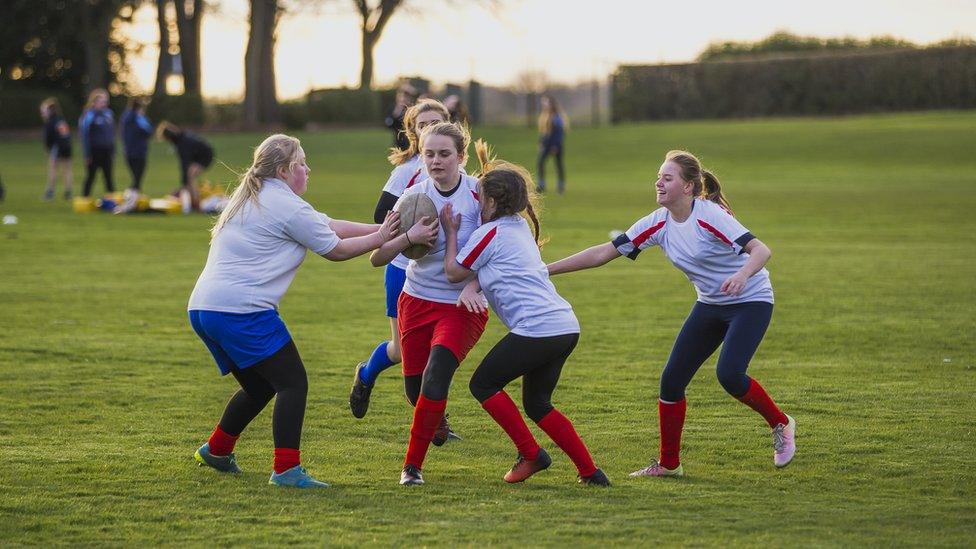Rugby: Changes to tackles in community games aims to reduce head injuries
- Published
- comments

The rules on tackling in rugby are changing - but how will you be affected?
It's hoped rugby is going to be a safer game to play after rules around tackle heights have been changed in England.
The Rugby Football Union (RFU) has agreed to lower the height to below the waist to improve player safety and reduce the risk of concussion.
There have been concerns about the dangers of repeated head injuries for players in both elite and grassroots game.
The changes will apply to the community game from the summer including in clubs and schools.
After 13-year-old Matteo was injured playing Rugby, he wanted to find more about the long-term effects of his concussion and what needs to change in the sport. (Report from 2021)
In England, Under-7s and Under-8s already play non-contact rugby, meaning they do not tackle at all.
For those playing in Under-9 to Under-14 teams there is a different law that ensures that players do not tackle above an imaginary level in line with the armpits.
That's now being changed so from 1 July 2023, players will only be allowed to tackle from the waist down.
Officials are doing this to try and make the game safer and reduce the risk of concussion - a type of injury that is caused by a shock to the brain.
Alix Popham believes that the people in charge of the game did not protect him and his fellow players properly during their rugby careers
Recently a group of more than 200 former professional rugby players started taking legal action against the organisations in charge of the sport.
They say, playing at a professional level and receiving repeated blows to the head and body has left them with permanent brain damage.
Research shows that when the ball carrier is tackled higher it's more likely there will be bigger head impacts and the new rule will minimise the risk of that happening.
But not everyone is happy with the move.
Some people think it's taking away a central aspect of the game - the rough contact.
Others are wondering how amateur players will be able to progress to the elite teams without learning to tackle in the same way.
The community game covers clubs, schools, colleges and universities and the change will impact adults levels too - but not the elite game.
Concussion is one of the most frequently suffered injuries in the elite and community game
But RFU President Nigel Gillingham said:
"Evidence from our own research and from around the world clearly shows that lowering the tackle height will reduce head impact exposure and the risk of concussion.
"The tackle will remain the primary method of stopping the ball carrier using safe techniques that are taught from an early age.
"The RFU will continue its work to reduce head impacts in contact training in both the community and elite games."
What do you think about the decision? Let us know in the comments below.
